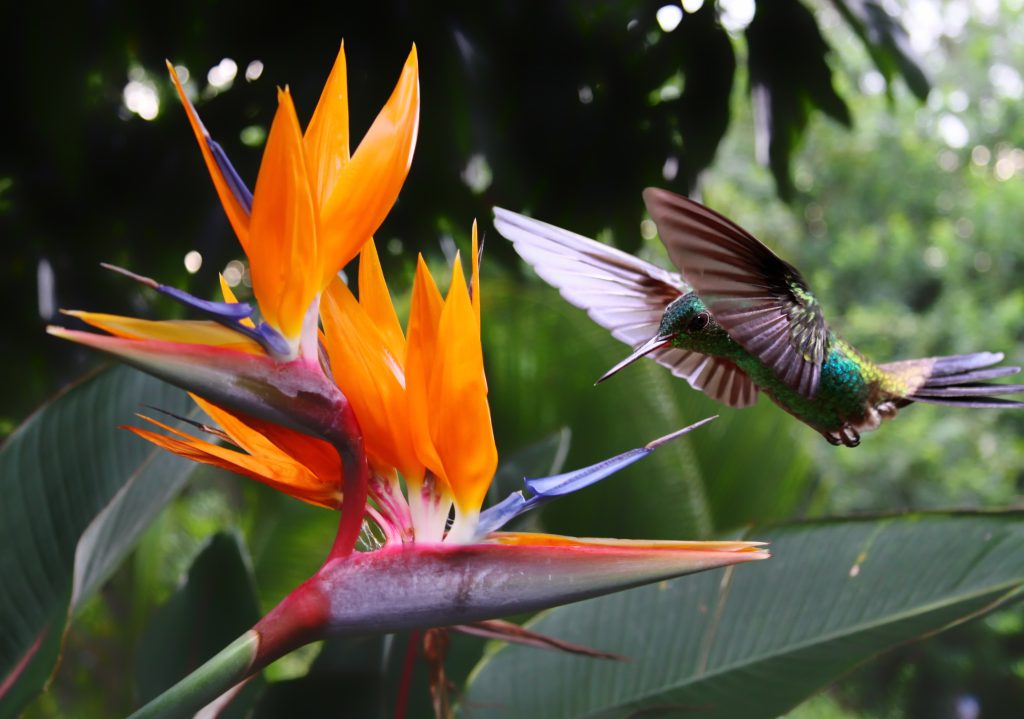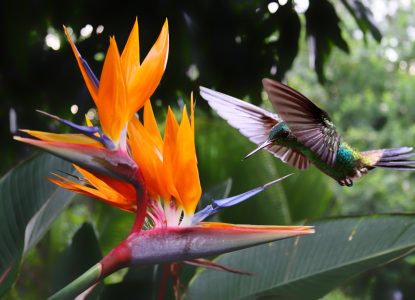By Dr. Husna Ahmad, OBE – CEO Global One 2015
– – –
In light of G20 India’s theme for 2023 being “One Earth, One Family, One Future,” I find it valuable to reflect on last winter’s COP 15 on Biodiversity.
The 15th Conference of Parties to the UN Convention on Biological Diversity adopted the “Kunming-Montreal Global Biodiversity Framework” (GBF), including four goals and 23 targets for achievement by 2030. It was hosted in Montreal in December 2022 by Canada and chaired by China.

At COP 15, the focus was on biodiversity and nature loss. It is scary to imagine the triple planetary crisis that we are facing. The thought that through the actions of humans today, we are accelerating the rate of species extinction far greater than could be seen in over the past 10 million years is actually beyond scary. We need to recognise now the interconnectedness of all who live on our planet and the impact of our actions – in the past, the present and in the future.
Within religious traditions, including Islam, relations between humans and other elements of the natural world are not compartmentalized but instead conceived of as being tied into a series of continuous spiritual interactions. So what has gone wrong?
The Global Biodiversity Framework’s 4 goals focused on:
- Maintaining the connectivity and resilience of all ecosystems;
- Valuing and managing biodiversity sustainably, and by 2050 enhancing nature’s contribution to people through restoration and support of sustainable development for present and future generations;
- Sharing fairly and equitably the monetary and non-monetary benefits of genetics resources and digital sequence information on genetic resources;
- And ensuring equity and access, that in order to fully implement the GBF there was sufficient financial resources and capacity building of all parties.
A Unique COP with Room for All of Society, Including Faith
This was my first time attending a COP on biodiversity and nature loss (actually, before last summer I didn’t even know that there was a COP on biodiversity). It was not the circus that we saw with the UN COP 26 and 27 on climate change, and not as well-attended as those events. However, for me it was significant. Why? Because it was the first time that there was a Faith caucus with its own pavilion. The 30 or more faith-based NGOs representing all the major faiths and traditions actually had their own space and we made sure we utilised our space – with lunchtime reflections and quiet moments each day; opportunities for interacting with each other and building a coalition of like-minded people. There were, over those two weeks of the proceedings, so many opportunities for all of us to speak on panels and really engage with the proceedings.
“30 BY 30” – this was a mantra that I heard mentioned by quite a number of speakers during my time at COP 15. This was finally accepted by the negotiators. The GBF aims to protect and restore at least 30% of Earth’s land and water by 2030, as well as reduce our ecological footprint, half the risks of pesticides, and eliminate or repurpose harmful subsidies.
A rights-based framework and a whole society approach were terms also discussed a lot, which made their way into the Biodiversity Framework and really resonated with me. It is indeed significant that the Framework recognizes the contributions and rights of Indigenous Peoples and local communities, the role of women and girls, and children and youth.
My sense is that the GBF and COP 15 reinforced the importance of faith and religion. Our world has gone off track, and we need to be guided back to the recognition of the majesty of what we behold.
The GBF’s 23 Targets in Relation to Religious Teachings
As Muslims, the significance of nature in relation to humanity is not lost on us. Our artists and architects through the centuries have tried to manifest the beauty of nature in their designs and artwork. Texts such as the Tezkiret ül-Bünyan testify to the position of the architect within this ordered system: the natural environment is outlined as ‘a world palace that resembles a rose garden’, which must not be undermined by the build environment, but instead complemented by structures that are designed with the emulation of the natural world in mind. In the 16th century Classical Ottoman art and architecture highlighted this core relationship between Islam and the natural world.[1]
The 23 targets of the GBF align well with the world’s faith traditions as they touch on equity and fairness, justice and protection. If we just look at Target 16, you can see Islamic principles expounded here. Target 16 mentions halving global food waste by 2030, significantly reducing overconsumption and substantially reducing waste generation, in order for all people to live well in harmony with Mother Earth.
The Quran tells us clearly to tame our greed and want:
“Whoever desires the harvest of the Hereafter – We increase for him in his harvest. And whoever desires the harvest of this world – We give him thereof, but there is not for him in the Hereafter any share.” (Ash-Shura: 20)
Three Focuses to Halt Biodiversity Loss
I believe there are three things which we need to focus on if we are to halt biodiversity and nature loss:
Firstly, to acknowledge that our lives on this planet are for a finite time – Our blessed Prophet said it beautifully –
Prophet Muhammad (SAW) said: “I am in this world like a rider who halts in the shade of a tree for a short time, and after taking some rest, resumes his journey leaving the tree behind.” (Ahmad, Tirmidhi)
Secondly, knowledge is key – and the dissemination of that knowledge through advocacy, training, workshops, translations, etc. in a faith-sensitive manner will enable the ripple effect we need to build momentum on biodiversity and climate change.
Narrated Abu Darda’: I heard the Apostle of Allah (peace be upon him) say: If anyone travels on a road in search of knowledge, Allah will cause him to travel on one of the roads of Paradise. The angels will lower their wings in their great pleasure with one who seeks knowledge, the inhabitants of the heavens and the Earth and the fish in the deep waters will ask forgiveness for the learned man. The superiority of the learned man over the devout is like that of the moon, on the night when it is full, over the rest of the stars. The learned are the heirs of the Prophets, and the Prophets leave neither dinar nor dirham, leaving only knowledge, and he who takes it takes an abundant portion. (Translation of Sunan Abu-Dawud, Knowledge (Kitab Al-Ilm), Book 25, Number 3634)”
Thirdly, community – this whole society approach – we need to embrace this if we are to see the change we want.
“There is no animal on the earth, or any bird that wings its flight, but is a community like you.” Quran (6:38)
The community in Islam is not founded on race, nationality, locality, occupation, kinship, or special interests. It does not take its name after the name of a leader or a founder or an event. It transcends national borders and political boundaries. The foundation of the community in Islam is the principle which designates submission to the will of Allah, obedience to His law and commitment to His cause.
The Prophet Muhammed (PBUH) was a role model who showed us how to live sustainably and simply, respecting the earth and our fellow humanity. He taught us to consume moderately and avoid wasting precious natural resources such as water “even if on the banks of a flowing river” [Ibn Majah].
Conclusion
In conclusion, I believe that IF20 has a strong role to play in pushing the goals and targets of the GBF forward by amplifying the voices of the faith traditions in the environmental and biodiversity space.
With the next COP16 taking place in Turkey at the end of 2024, this gives us time to reflect on the GBF and how, for instance, we work to prevent species extinction, limit our consumption, and promote more cooperation amongst faith traditions to reach the “30 by 30” target set by this framework.
– – –
Dr. Husna Ahmad, OBE is the CEO of Global One 2015, which is a faith based International NGO focused on women. She is currently a Board member of Faith for the Climate and Palmers Green Mosque (theMCEC). She is also a member of the Women’s Faith Forum UK; and Executive committee member of Barnet Faith Forum She is a member of the Multi faith Advisory Council [MFAC] to the UN Inter-agency Task Force on Religion and Development.
– – –
[1] Jale Nejdet Erzen, Aesthetics and Aisthesis in Ottoman Art and Architecture, 1991.


